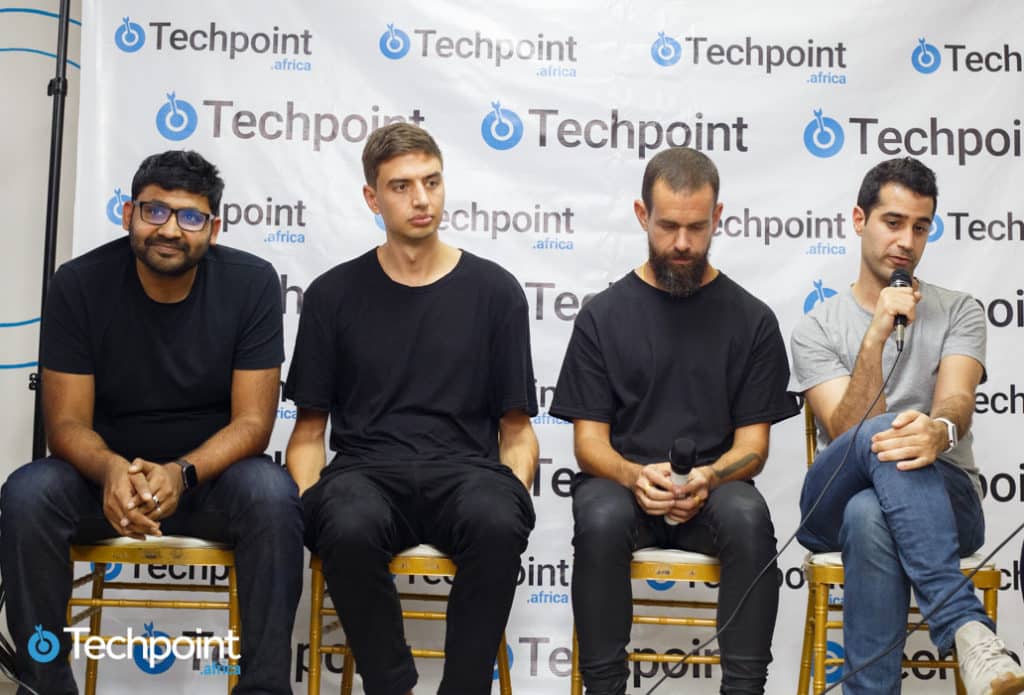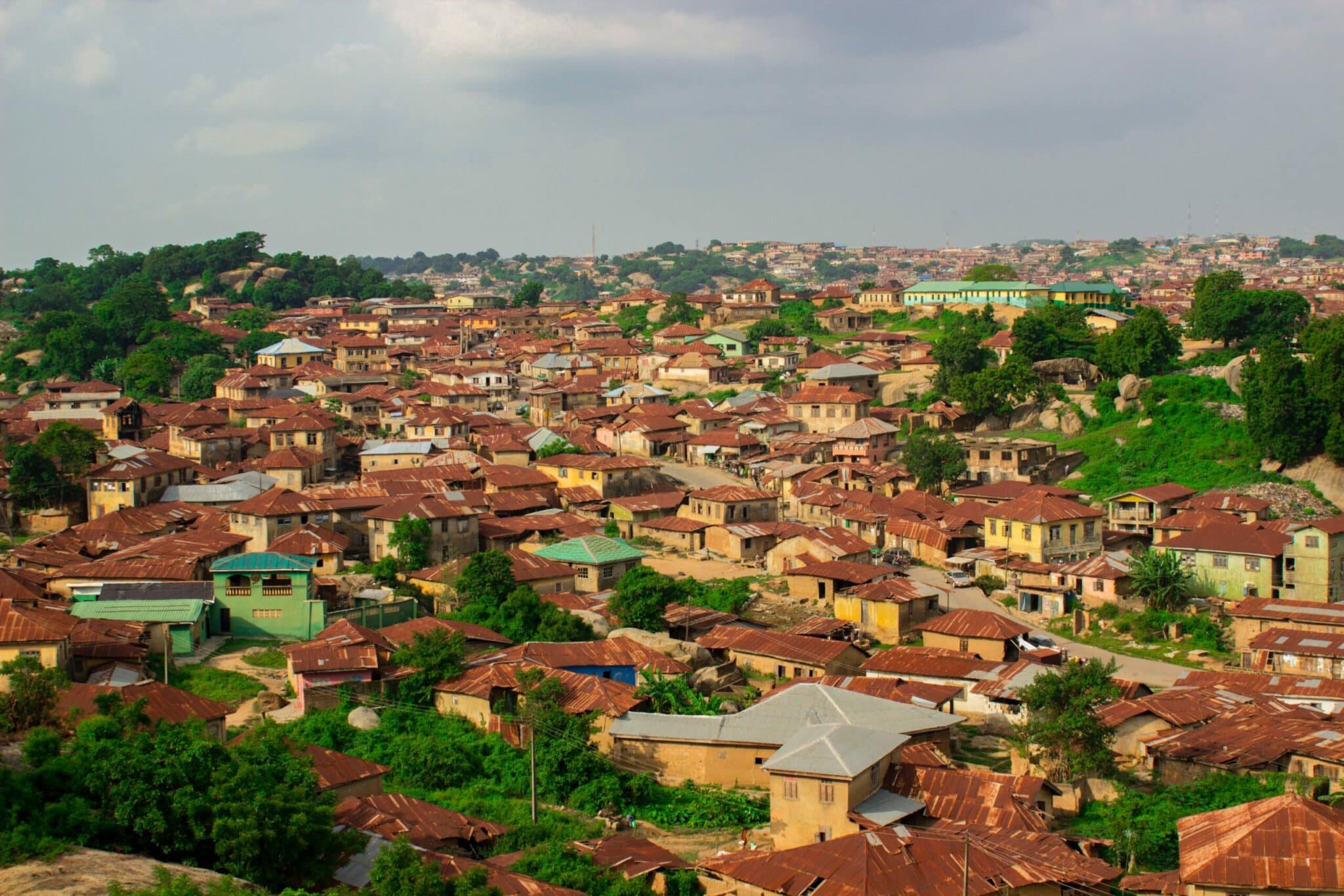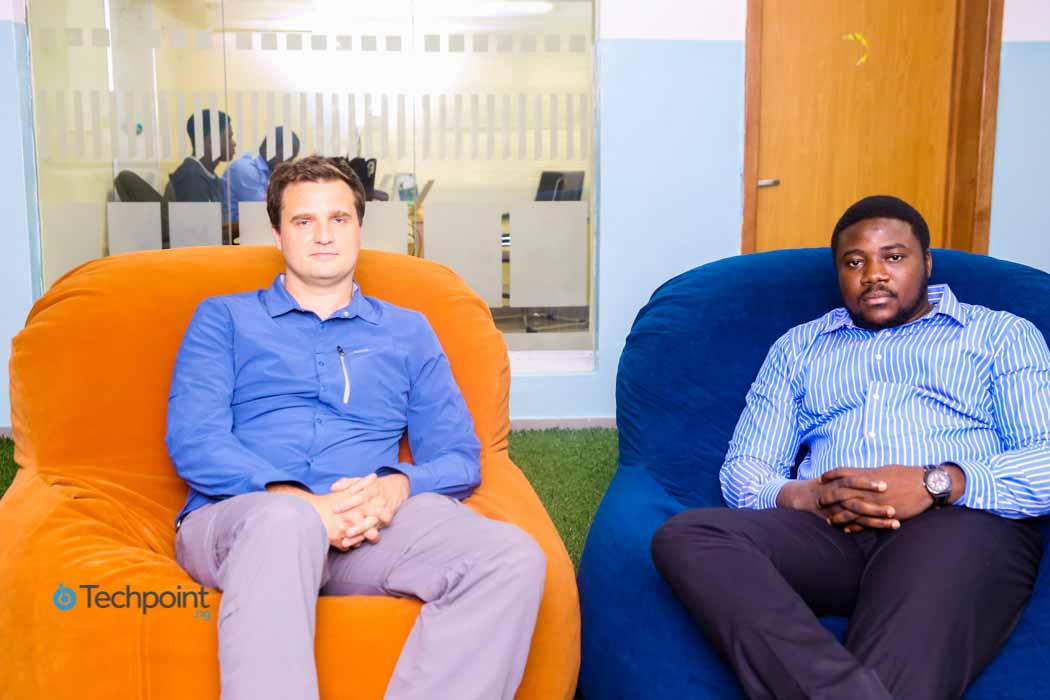In 2016, Opeyemi Adekunle moved to Lagos after landing a digital marketing role, but one year later, he left for the neighbouring city of Ibadan. Despite the superior career opportunities Lagos offered, the frequent traffic jams he ran into had taken a toll on him.
Home to more than 15 million people, Lagos is often referred to as Nigeria's economic capital. Its importance to the country's economy is also seen in the distribution of startups.
Nearly 90% of startups in the country are located in the coastal city, attracting more than $2 billion in funding since 2015. It has also hosted global tech leaders including Meta Founder, Mark Zuckerberg; X founder, Jack Dorsey; and OpenAI CEO, Sam Altman and served as a springboard for some of the continent's largest startups.
Its vibrant tech ecosystem has unlocked huge opportunities, attracting skilled individuals such as Adekunle. But that tide is turning slowly as startup ecosystems are gradually being built in cities like Kaduna, Jos, Ibadan, Aba, and Port Harcourt.
Building startup ecosystems in secondary cities
Worried about the lack of activity in their home states, some entrepreneurs and investors are banding together to boost the growth of tech-driven startups in Nigeria's secondary cities.
"Secondary cities are like the underdogs in a race, full of potential just waiting to be tapped. These cities are super important because they help spread the economic activities around a country," Surayyah Ahmad Sani, General Partner at Aduna Capital says.
In 2023, she teamed up with Sanusi Ismaila to start Aduna Capital, an early-stage VC firm that will commit 55.5% of its $20 million fund to startups in northern Nigeria.

Sani previously founded YDS Online before it was acquired in 2022. Ismaila, on the other hand, founded Colab, a tech hub in Kaduna that has spawned numerous talents and startups.
Both entrepreneurs believe that the large population and lower penetration of digital services in the North present immense opportunities that can be unlocked with the right combination of mentorship and capital.

Join over 3,000 founders and investors
Give it a try, you can unsubscribe anytime. Privacy Policy.
In oil-rich Rivers State, Uche Aniche is plotting ways to spur innovation in the south eastern and southern parts of the country through Startup South.
While the region is famous for oil deposits and trade, he hopes to nurture tech-driven startups in the region, arguing that "decentralising opportunities will lead to more prosperity."
Although startup activity has been going on for a few years in these regions, Aniche argues that COVID-19 was a game changer. Many organisations were forced to adopt remote work modes, allowing talents to live and work wherever they wanted.
It also changed venture capital investing. Restricted by national lockdowns, investors tweaked their strategies to accommodate the realities on the ground, opening up an opportunity for founders in previously overlooked areas.
Sani adds that lower costs of doing business and increased government attention in these regions have encouraged the building of more startups.
Opportunities in Nigeria's secondary cities
While most tech startups in the country operate out of Lagos, Aniche believes other cities have strengths they could tap into to build thriving ecosystems.
"Ogbomosho for instance is particularly suited for both agro and health-focused ventures. Enugu will thrive for education and consumer innovation. Nnewi is a manufacturing hub already and Aba is both a fabrication and fashion hub. Owerri is synonymous with hospitality, while Port Harcourt should be the energy hub."
Sani adds that secondary cities would benefit from building an advantage in certain sectors rather than copying the same products built by their counterparts in Lagos.
Before he was appointed the CEO of the Anambra State ICT Agency, Chukwuemeka Fred Agbata spent more than a decade working with founders and investors in Lagos. Yet, he maintains that the lower costs of living in Nigeria's secondary cities are an advantage.
Lagos is Africa's sixth most expensive city to live in and rent is often three to four times more than in other cities. Tech workers have noticed this and begun migrating to cities where they can maximise their earnings.
But it's not just employees who are doing this. uLesson briefly moved its operations to Jos in 2020.
Speaking about the decision, Sim Shagaya (CEO), said, "The principle is simple: pay Lagos wages in a low-cost location that’s traffic and stress-free (and genuinely beautiful). Employee satisfaction is higher than for any company I have founded."
Challenges of building in secondary cities
Shagaya's premise for moving uLesson to Jos was built around employee satisfaction.
Happy employees would do great work, he must have reasoned, but when that decision was reversed 10 months later, he explained that the startup needed a city with better flight connections.
While remote work means that such concerns may now be redundant, entrepreneurs in these cities still face more problems.
Most cities outside Lagos have poorer Internet connections and a lower smartphone penetration. Without these, talents will face an uphill battle upskilling, while startups will have a hard time selling products.
Lower smartphone penetration also means that there's a smaller market for digital services within a geographical location. Yet, this provides an opportunity to build global products. Estonia's population is lower than all 36 states in Nigeria, but it has over 10 unicorns.
The absence of supporting infrastructure in the form of talents, investors, and corporates makes it harder to build startups in secondary cities. Fortunately, all states in the country have universities that can act as a pipeline for talent, but more work needs to be done to ensure that investors and corporates actively participate in local startup ecosystems.
No one is coming to save you
Recognising that there are opportunities is not enough and deliberate action must be taken to harness these opportunities.
Patrick Ndifon, a product manager resident in Calabar, the Cross River State capital, highlights three components for building startup ecosystems in secondary cities. The first is research and development centres.
There's a tendency for founders in secondary cities to mirror their counterparts in Lagos. Instead, he argues that research and development centres will enable founders to test various ideas before going to market.
The second component is private sector collaboration to fund and encourage startup activity in secondary cities.
"Government is not really an initiator. Government comes in when things have started," he explains.
And Aniche agrees. While acknowledging the role the government should play, he insists that individuals should make the first move.
"Government didn't enable the Lagos ecosystem. The same way private people pushed the ecosystem is how some of us are pushing the ecosystem now. Government will come in at the right time," Aniche adds.
The last component of Ndifon's strategy is increased storytelling aimed at highlighting the efforts of startups in secondary cities.
"In Cross River State, for example, there are people doing really great things, but sometimes they get lost in the larger conversation, so there has to be deliberate effort by the leaders within these ecosystems to spotlight these developments."
Agbata adds two more components — government and collaboration. He points out that governments can help to spur innovation or attract investment through policy making. Dubai is a great example, having launched the Golden Visa and National Programme for Coders to attract foreign tech talent to the region.
"No one is coming to build your ecosystem for you. Guys have to come together to do what it takes," he submits.





















